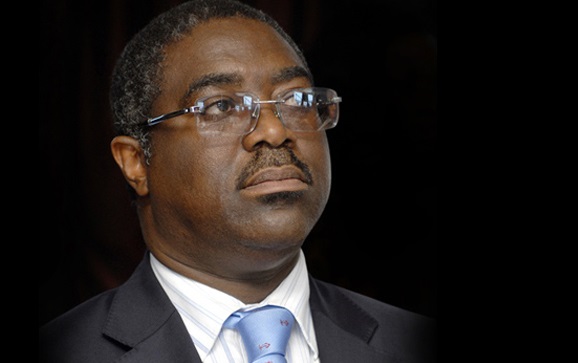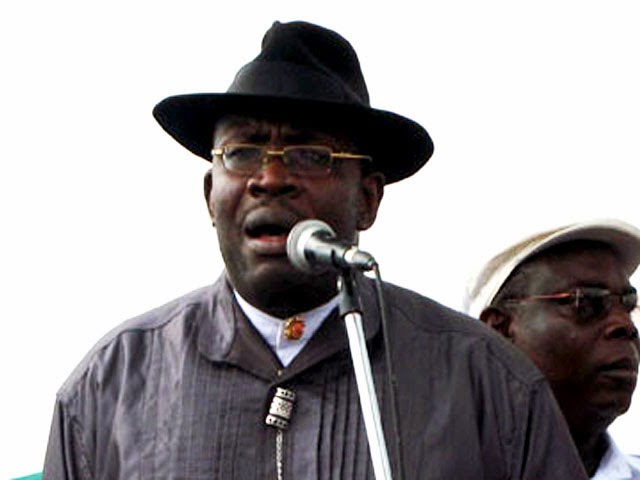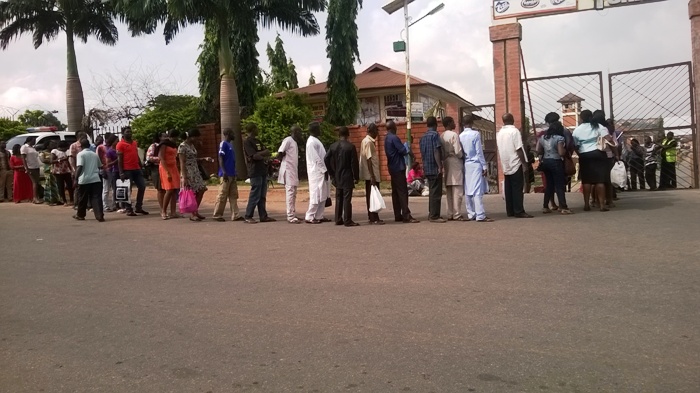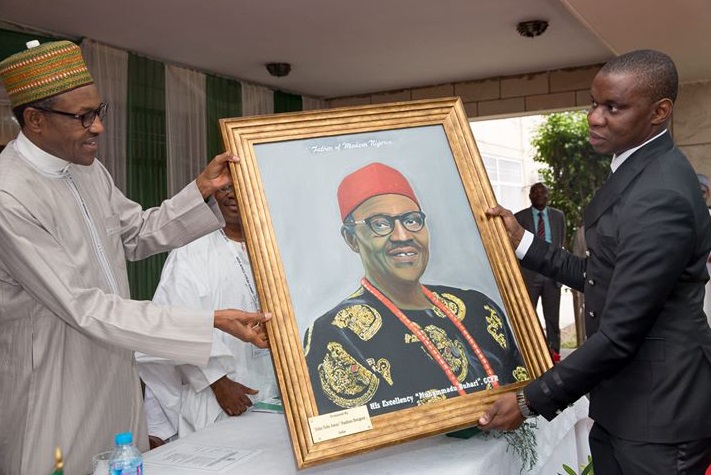In 2012, after I left THISDAY and retired from full-time journalism, I set up an office for my graphic design and printing business. I went in search of furniture with a shopping list full of big dreams and limited budget. A furniture shop was having a sales promo and I eagerly went there. I saw a lot of beautiful things. But despite all the discounts, some items were still out of my budget. So I complained to the manager, asking for more discount. After stalling a bit, but apparently sensing that I really, really wanted to buy the items, she said: “Okay, I will remove the VAT. Pay without VAT.” I was baffled. Who on earth has the power to waive VAT except the government?
As we continue our discourse on the “low-hanging fruits” that President Muhammadu Buhari can pluck to plug the revenue loopholes and boost government income, taxation readily comes to mind. In the first instalment of this series published on December 20, 2015, I argued that Nigeria as an import-dependent country can reap more revenue from imports. I did not advocate any increases in levies and duties because I know it is not necessary. All we need to do is clean up the ports. I have heard maritime experts estimate that efficiency at the ports can bring an additional N1 trillion to government coffers yearly. Some say it could be as high as N3 trillion. Simple efficiency!
As oil revenue tumbles and government battles with low income, I suggest a second “low-hanging fruit”: taxation. No, I am not saying tax rates should be increased or new taxes imposed. Although at 5%, our VAT rate is about the lowest in the world (by comparison, Ghana charges 17.5%), I am not even advocating that we increase VAT. Buhari wants the rich to pay more taxes, which is a good idea, but it may not even be necessary for now. Don’t increase tax rates. Don’t introduce new taxes. Just put efforts into cracking down on tax cheats and encouraging voluntary compliance — and watch the revenue explode. Trust me: tax evasion is a bigger problem than low tax rate.
Let’s start with VAT, which is a consumption tax. With a population of 170 million, you can imagine the level of consumption in Nigeria. VAT is paid indirectly by the poor and the rich. If you make a phone call, you pay VAT. If you buy a bottle of Coke, you pay VAT. It doesn’t matter your economic status. However, as we can deduce from the example I started this discussion with, many businesses deduct VAT but do not remit to government. If you can decide not to charge your customer VAT, you can as well decide not to remit at all. Luckily, not all items are VATable so as to protect the poor, but we must considerably improve compliance on remittance from the VATable items.
Advertisement
In the businesses that I run, I am always at a loss when we add VAT to charges and the customer ignores us and pays only the substantive figure. We are being forced to pay VAT from our own resources, thereby short-changing ourselves — although it is safer, for our own good. Many businesses are also confused on who should bear the responsibility for VAT. How do they make sure VAT cheats are detected? How do they make sure the rules are simplified for everyone? How can they bring more businesses into the VAT net? These are the challenges before the tax authorities. They need to simplify the tax laws to limit avoidance and evasion.
On personal income tax, which is entirely a state’s business (except the federal capital territory and the armed forces which are federal’s), my hunch is that tens of millions of Nigerians are outside the net. It is easier to deduct PAYE at source from government workers, but private companies often deduct without remitting to the government. I don’t have the figures, but I am willing to guess that over 30% of businesses that deduct income tax from their employees do not remit. They think it is an opportunity to reduce the wage bill, but it is not their money; it is government’s money. So the question is: how do we make sure employers begin to remit PAYE?
There are several other issues with the tax system which are too technical to be discussed here but which need to be addressed. Mr. Babatunde Fowler, the executive chairman of the Federal Inland Revenue Service (FIRS), is an experienced and intelligent administrator. He knows the nooks and the crannies of taxation, and I expect a modernised style of administration under him. While some problems lie with businesses and individuals, the government has a large share of the blame. When people are overcharged taxes, for instance, it is impossible to get a refund from government. Rather, the refund is treated as “advance payment”. This ought not to be so.
Advertisement
I have a proposal for Buhari and the governors: they should declare a TAX AMNESTY nationwide. What?! Yes, government should forgive ALL companies and individuals that have defaulted in tax payments until now and offer them a new lease of life. The message is simple: let him that stole steal no more. Nigerian businesses have thrived on dishonesty and corner-cutting for decades, and now is the time for a new beginning. Let everyone come boldly to the revenue service and receive a clean slate and start a new life. This looks like a crazy proposal, but I am not advocating amnesty for corruption. I am talking about amnesty for tax defaulters only.
In many countries, tax administration is shifting focus from coercive enforcement to voluntary compliance because of the cost and difficulty of enforcement. In truth, it is not easy for anyone to pay tax. I would rather have the whole of my income to myself than give anything to government. That is human nature. The fear of punishment makes citizens comply, but it has also been discovered that coercion hurts tax administration and drives many potential tax payers underground. With voluntary compliance, it becomes a consensual relationship between the state and the citizen. It does not solve all problems, of course, but it enhances the dynamics of state-society relations.
What’s my point? Many businesses and individuals in Nigeria today are not paying taxes because they are afraid of their past. They don’t want to be reminded of the piled-up arrears and compelled to pay or penalised. They are afraid of being forced to pay the money that they do not have or cannot afford to pay any longer. They thus remain outside the tax net. This also affects their growth as they are unable to do formal, big businesses that will improve their income. Some people have had to abandon old businesses because of historical tax liabilities. Employers who owe huge tax arrears keep hiding — just to avoid answering questions on their outstanding liabilities.
In my opinion, declaring a tax amnesty will improve voluntary compliance. It is like the government telling millions of Nigerians: your sins are forgiven; go and sin no more, lest something worse comes upon you. Everybody must know the score, going forward. I have this confidence that millions of Nigerians will become part of the new order and seek to do things properly. I don’t know if any country has ever declared a blanket tax amnesty before, but then Nigeria can show the way. Those who have been good citizens until now need not be angry — they should gladly welcome new members into the tax family. It is one-off amnesty with dire consequences for the unrepentant.
Advertisement
I will sum up my position thus: increasing tax rates and imposing new taxes may be able to bring increased income, but minimising tax evasion will even do more in the short run and could double, triple and quadruple revenue. The place to start is for the government to forgive the past and give people an opportunity to repent from their tax evasion ways and be part of a new order. Lapses in tax administration should be addressed. Those who have defaulted in tax payments in the past can be encouraged come into the fold. Those who deduct VAT and PAYEE and fail to remit can now be encouraged to desist from their wicked ways. Let him that stole steal no more.
AND FOUR OTHER THINGS…
BENCHMARK CRISIS
I certainly do not envy President Muhammadu Buhari on the 2016 budget and the web of difficult indices he has to deal with. When you benchmark the budget at $38 oil price and it is already selling below that even before the budget is approved, you can say the budget was brought in dead. Our budget already includes the debts we are going to take this year, so when the benchmark drops you either cut your expenditure or take more debts to meet your obligations. And we are yet unclear about how to attract the needed investment into the economy, with the fate of the naira neither here nor there. Crossroads.
ALL-ROUND JUSTICE
Advertisement
There has been a lot of outcry on the current anti-corruption efforts of President Buhari, with the Peoples Democratic Party (PDP) in particular alleging that only their members and sympathisers are being investigated and put on trial by the Economic and Financial Crimes Commission (EFCC). There is a cry of political persecution out there which we should not dismiss just like that. However, my advice would NOT be that EFCC should let indicted PDP members off the hook. Rather, I would urge the EFCC to also investigate the petitions against non-PDP members and prosecute those who are indicted too. Fairness.
TAMBUWAL IS 50
Advertisement
Rt. Hon. Aminu Waziri Tambuwal, the governor of Sokoto state, is 50 today. I would like to wish him a happy birthday particularly because of the attention he is paying to education in his state. He has committed 29% of his first budget to education, surpassing the UNESCO-recommended 20% — and I hope other states of the federation will be inspired by that. Tambuwal, who presided over the House of Representatives between 2011 and 2015, should be proud of what he has attained as a politician after getting elected into the lower house 13 years ago at the age of 37. Hurray!
YAYA’S YOYO
Advertisement
Could there be a more megalomaniac African footballer than Yaya Toure? He is massively obsessed with his self-importance. He is bitter that Gabon’s Pierre-Emerick Aubameyang won the 2015 CAF African footballer of the year award, branding his failure to win it the fourth successive time as a “shame on Africa”. He thinks he should be the natural choice because he helped Cote d’Ivoire win the 2014 African Cup of Nations. Where were you, Yaya, when John Mikel Obi shone brilliantly as Nigeria won the same trophy in 2013 — but the prestigious award went to one guy named Yaya Toure? Pathetic.
Advertisement







